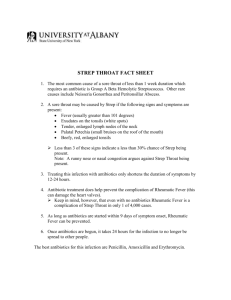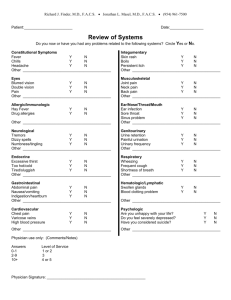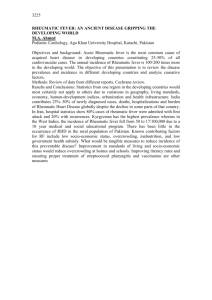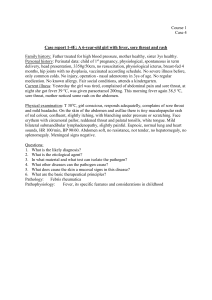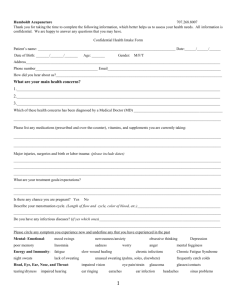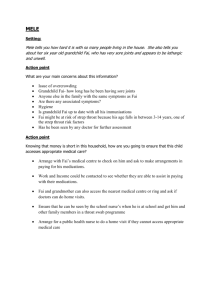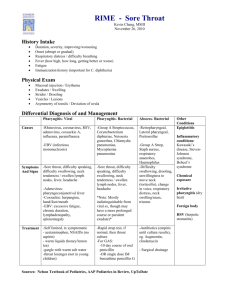PBL 2 Group 6 feedback
advertisement
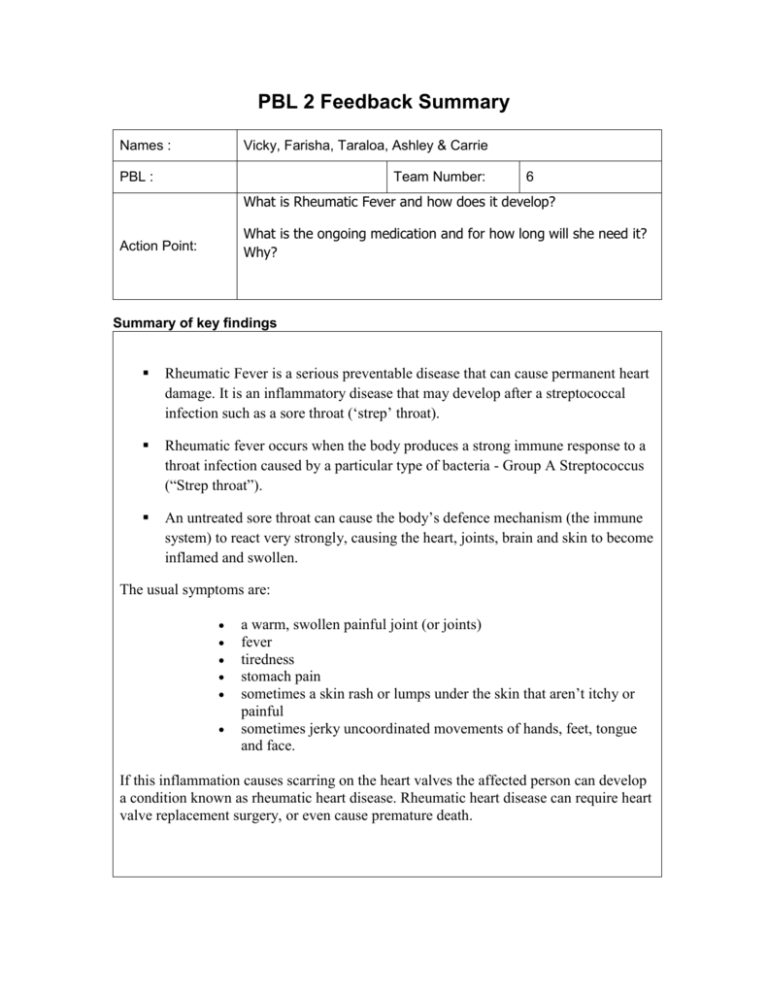
PBL 2 Feedback Summary Names : Vicky, Farisha, Taraloa, Ashley & Carrie PBL : Team Number: 6 What is Rheumatic Fever and how does it develop? What is the ongoing medication and for how long will she need it? Why? Action Point: Summary of key findings Rheumatic Fever is a serious preventable disease that can cause permanent heart damage. It is an inflammatory disease that may develop after a streptococcal infection such as a sore throat (‘strep’ throat). Rheumatic fever occurs when the body produces a strong immune response to a throat infection caused by a particular type of bacteria - Group A Streptococcus (“Strep throat”). An untreated sore throat can cause the body’s defence mechanism (the immune system) to react very strongly, causing the heart, joints, brain and skin to become inflamed and swollen. The usual symptoms are: a warm, swollen painful joint (or joints) fever tiredness stomach pain sometimes a skin rash or lumps under the skin that aren’t itchy or painful sometimes jerky uncoordinated movements of hands, feet, tongue and face. If this inflammation causes scarring on the heart valves the affected person can develop a condition known as rheumatic heart disease. Rheumatic heart disease can require heart valve replacement surgery, or even cause premature death. Ongoing medications for Fai 1. antibiotics - the immediate goal is to treat the streptococcus infection with antibiotics, Fai will continue to receive monthly doses of antibiotics after the initial treatment to help prevent further complications Penicillin injections: must be given every 28 days are given in your child's thigh or bottom can be painful at first but children quickly get used to them are given by your Community Nurse, District Nurse or Public Health Nurse. They will come to your home or your child's school and give the injection. According to the New Zealand Guidelines for rheumatic fever, Fai requires benzathine pencillin via the intramuscular for 10 years or until she is 21 years old. This is the best secondary prophylaxis to prevent reoccurrence of another rheumatic fever attack. 2. anti-inflammatory medications - depending on the severity of Fai’s condition, the doctor may prescribe medication to help decrease swelling that occurs in the heart muscle, as well as to relieve joint pain 3. bed rest - the length of bed rest will be determined by Fai’s doctor, based on Fai’s severity. Implications for nursing practice A competent nurse must be able to know the difference between sore throat and strep throat and has the ability to manage and assess any patient with the following problems Health education on prevention and treatment of Rheumatic Fever Reference sources & resource with Rationale for use www.heartfoundation.org.nz - The National Heart Foundation of New Zealand Guide for sore throat management
